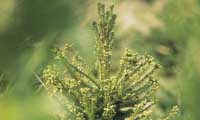

New efforts to crack down on illegally sourced plywood imported from China into the UK have been backed by the Wood Panel Industries Federation (WPIF).
The Wood Panel Industries Federation (WPIF), which includes Norbord, insists that while such action is long overdue to protect endangered forestry and wildlife, it hopes that fresh enforcement of EU legislation will lead to greater compliance, more responsible sourcing and enhanced consumer confidence.
As a result of industry concerns and new intelligence over illegal logging in threatened areas, the National Measurement Office (NMO) has been investigating plywood manufactured in China - the world's largest plywood producing and exporting country - and then sold in the UK.
In an effort to prevent illegally logged timber entering the European market, the EU Timber Regulation (EUTR) came into force in 2013. The NMO, the UK enforcement agency for this regulation, has since uncovered worrying findings, indicating a strong trend of non-compliance.
After identifying companies and requesting due diligence on their plywood sources, it has now published a report highlighting the scale of the problem.
Of the 16 companies it identified, 14 submitted due diligence systems that failed to meet regulatory guidelines, highlighting a common inability to reach a conclusion of negligible risk over the source of the timber in their product.
The NMO said the combined value of the imports of these companies amounts to a worrying 10% of the plywood imported from China into the UK in the last year.
The WPIF is now keen to see further enforcement of EUTR legislation that will drive home a zero tolerance message to all in the supply chain, including manufacturers, importers, distributors and end users.
WPIF is a representative organisation giving voice to the industrial manufacturers in the United Kingdom and Ireland of Wood Chipboard, Oriented Strand Board (OSB) and Medium Density Fibreboard (MDF).
Director general of WPIF, Alastair Kerr, said: "Despite EU regulation, it's now clear that the UK is still importing illegal and unsustainably grown timber from high risk areas of the planet - and that the problem is worse than many had thought, including evidence that some endangered timber species used in the plywood were claimed to be less vulnerable types.
"The NMO's report confirms what many of us already knew - that a large proportion of Chinese plywood manufacturing continues to go unchecked and its supply makes up around half of tropical plywood imports in the UK. Such illegal imports undermine the efforts of responsible manufacturers who are supplying fully certified products.
"Nevertheless, we are pleased to see that a renewed focus on enforcement is set to go some way to remedying that situation, providing evidence that the government is listening to our concerns. We fully back NMO efforts to curb the problem of illegally sourced timber, to send a clear message to those that continue to engage in its production, and to start better protecting some of the world's most sensitive habitats and their incredible biodiversity."
Mr Kerr added: "The opportunity must now be seized to put the UK firmly on the road to becoming a country that does not tolerate irresponsible plywood manufacturing."